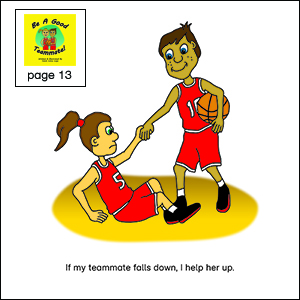According to the registrar of all that is worthy of celebration, The National Day Calendar, tomorrow is officially National Upsy Daisy Day—a day to “get up gloriously, gratefully and gleefully.”
Upsy Daisy is such a whimsical expression. It’s both fun to say and hear. Though typically used to reassure a child who has fallen down, upsy daisy can also be a lighthearted way of encouraging an adult to persevere.
The expression’s exact origins are unknown, though it is probably safe to assume they are at least partially derived from the idea of rising up after being on the ground among the daisies. Historically, daisies are associated with new beginnings.
Symbolically, the flower itself plays into the expression’s meaning. Known as “the day’s eye,” the daisy closes at night but opens to expose its magnificent yellow center when hit by sunlight. The daisy doesn’t just open, it opens with radiance. Telling someone upsy daisy is a way of hitting that person with a dose of positivity and helping them reset their attitude.
 Helping others is a mark of a teammate who cares. In my children’s book, Be a Good Teammate, I illustrate the concept of caring with a drawing of a player extending a hand to help a fallen teammate. The caption on the page reads: If my teammate falls down, I help her up.
Helping others is a mark of a teammate who cares. In my children’s book, Be a Good Teammate, I illustrate the concept of caring with a drawing of a player extending a hand to help a fallen teammate. The caption on the page reads: If my teammate falls down, I help her up.
Good teammates never rejoice in a fellow teammate’s failures. When someone on their team stumbles, they see it as their duty to pick their teammate up—sometimes literally, sometimes figuratively.
In either case, they must be sure to pick their teammate up the right way.
During nursing school clinicals, students are taught early how to safely lift a patient. They learn that using the wrong technique can result in them hurting the patient and/or themselves. The same is true for good teammates.
If your approach to lifting a fallen teammate is to take over their responsibilities and do their job for them, you risk becoming an enabler. This response will lead to repeated missteps, promote the continuation of ill-advised behaviors, and do your teammate (and your team) a disservice.
A better approach is to follow what nurses are taught:
- Keep a firm base and maintain balance.
- Avoid twisting your body or getting your head and neck out of alignment.
- Keep the person who is being lifted close to your body and lift with your whole body.
- Encourage the patient to help you help them.
For good teammates, those instructions translate to mean:
- Stay true to your principles.
- Don’t compromise your integrity in your efforts to help.
- Don’t dabble in helping them from a distance; be fully immersed in your service.
- Encourage your teammate to help you help them.
Sometimes the best way to help a fallen teammate is to become their biggest cheerleader. Whether you tell them you can do it, keep fighting, or upsy daisy, know that your encouraging words can be just the help your teammate needed.
As always…Good teammates care. Good teammates share. Good teammates listen. Go be a good teammate.





